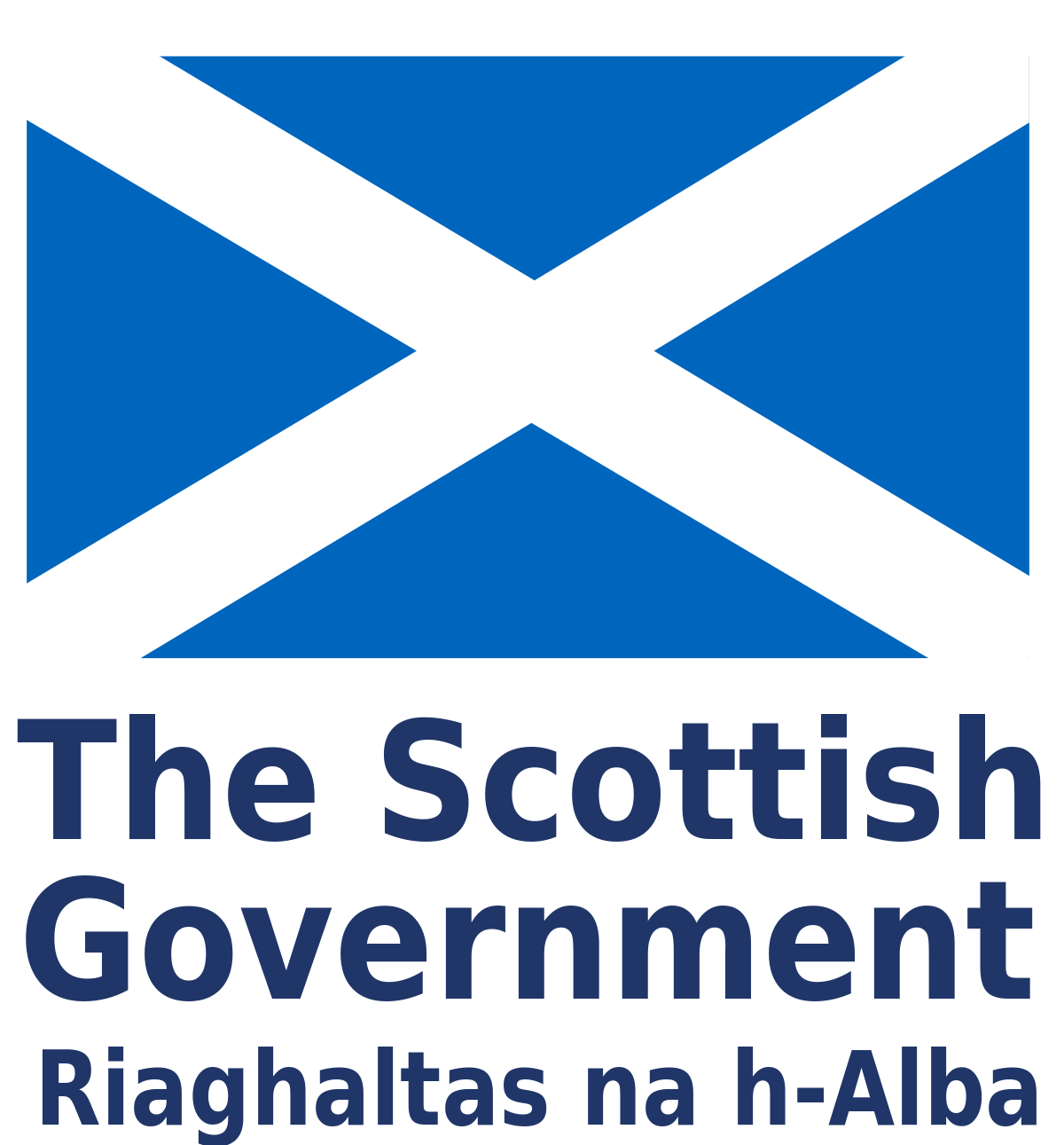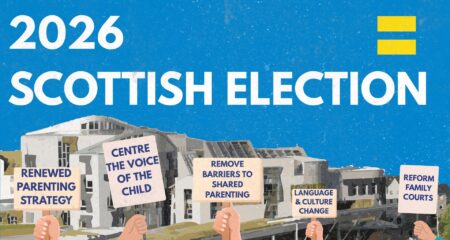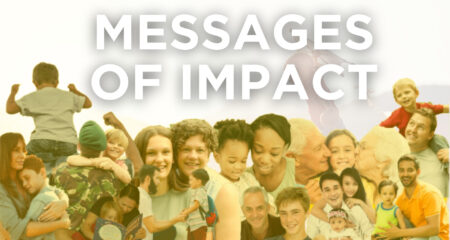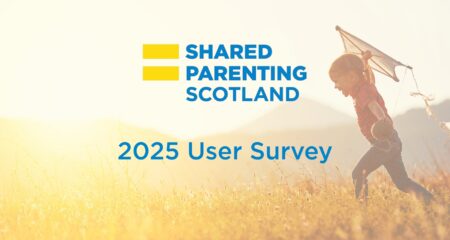We put the best interests of the
 at the heart of everything we do
at the heart of everything we do
At Shared Parenting Scotland we do this by:
CAMPAIGNING for changes in law and legal procedures to support equal parenting
HELPING and supporting parents to resolve disputes and put their children first
INFORMING and educating professionals and politicians about latest research
LISTENING and providing support and assistance on our helpline
DEVELOPING a range of training programmes to assist separated parents
Latest News

One more month to share your experiences in the Parenting After Divorce or Separation Study!
FAQs
Where do I start?
How can contact time be arranged?
- Week about – children spend one full week in one household and the next week in the other household.
- Split weeks – the children spend four days with one parent then three with the other, reversing this pattern the next week.
- Days about – may be best for young children so that they do not spend too much time away from either parent.
- When the children are at school age it is also necessary to work out a pattern for the holidays that allows for longer periods with each parent.
Should I Represent Myself in Court?
Can a 12 year old decide what happens about contact?
The 1995 Children (Scotland) Act says that the court should allow a child to express views and have regard to them as far as possible. It also says that the court should take account if the child’s age and maturity and that “a child twelve years of age or more shall be presumed to be of sufficient age and maturity to form a view” (section 6).
The 2020 Children (Scotland) Act removes this mention of age 12. Although that legislation hadn’t been enacted at February 2024 the court will now consider the views of much younger children. Whatever the age, the views of a child are not the deciding factor, although the older the child the more impact their views will have on the final decision.
My name isn't on the birth certificate of my child, how can I deal with this?
If possible, try to persuade the mother to add your name. There are forms for you and her to fill in and this adds your name to the birth certificate. See here for more details.
If she doesn’t agree to do this, you can raise it in court at the same time as obtaining a contact order. If she disputes that you are the father you can ask for a DNA test – do this via the Child Maintenance Service if you are being asked to pay maintenance.

Love, Loss & Living Edinburgh Course (Feb-Mar Pt 2)

Online Group Meeting (Zoom)

Glasgow Group Meeting

Dundee Group Meeting

Love, Loss & Living Edinburgh Course (Feb-Mar Pt 3)

Aberdeen Group Meeting
Shared Parenting Scotland is very grateful for the support we are currently receiving from the following funders. Click here for a full list of our funders

Scottish Government Justice Directorate
Supporting helpline running costs and to support the national roll-out of the New Ways For Families® training programme.

Children, Young People & Families Early Intervention Fund
Supporting parents to deal with family breakdown and put the welfare of their children at the heart of the process, engaging with marginalised groups of parents and increasing the awareness and understanding of professionals and decision makers on the benefits of shared parenting in Scotland and internationally

Robertson Trust
Supporting the Partnership Development and Outreach Manager’s salary and on-costs

Veterans’ Foundation
Contributing to the salary of the Veterans/Armed Forces Manager over a two-year period.


















